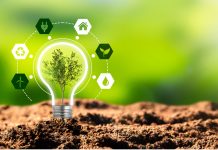The State-owned Industrial Development Corporation (IDC) has officially unveiled a R500-million fund, which seeks to promote energy efficiency and ‘self-use’ renewable energy projects primarily within energy-intensive industrial sectors in South Africa.
The Green Energy Efficiency Fund (GEEF) is backed by German development bank KfW, which has extended a €48-million long-term loan to the IDC at prime less 3%.
The facility, IDC CEO Geoffrey Qhena says, forms part of a larger plan at the domestic development financier to disburse some R25-billion in support of green economic development over the coming five years.
Through GEEF, the IDC will on-lend the funds in tranches of between R1-million and R50-million to enterprises with energy savings, or self-generation, projects able to shave at least 20% off their current power consumption levels.
The loans will be extended by GEEF at prime less 2% over a maximum tenure of 15 years, depending on the technology being deployed. The long-term nature of the funding is designed to match the anticipated duration it will take to generate a return on the green investments.
Green Industries business unit head Rentia van Tonder says 10% of the fund’s value has already been allocated to projects, which range from a rooftop solar photovoltaic installation at a Cape Town clothing and textile producer, to cogeneration and solar water heating schemes at chemicals and financial services companies respectively.
The IDC has also geared up for a slew of applications that are anticipated now that the fund has been officially launched.
No sectors have been specifically earmarked or excluded, but priority will be given to companies with yearly revenues of less than R51-million, assets of less than R55-million and employing more than 200 people.
Initiatives eligible under Eskom’s Integrated Demand Management programmes may also be eligible for GEEF support, including those seeking bridging finance to address the funding gap between making the actual investment and receiving the Eskom rebate or incentive.
Van Tonder says technical support, including the completion of energy assessments and the selection of the most appropriate technologies, will also be provided with the support of KfW to those applicants requiring such support.
KfW has material clean technology experience having supported the roll-out of renewable energy and energy efficiency programmes in Europe and the rest of the world.
In fact, the fist counsellor for economic cooperation and development at the German Embassy Stephan Klaus Ohme says KfW has emerged as a leading ‘green’ bank and is supporting some of the largest energy efficiency and renewable energy programmes in the world.
Ohme says the loan to IDC is also synergistic with South Africa internal green economy policies as outlined in the New Growth Path and the Industrial Policy Action Plan. Germany and German companies are also keen to participate in South Africa’s programme to procure 3 725 MW of renewable energy from independent power producers (IPP) between 2012 and 2016.
Van Tonder says the IDC will also be supporting renewable IPP projects, indicating that the bulk of the R25-billion will be directed to such initiatives. The balance will be shared between energy efficiency programmes, biofuels, emission and pollution management schemes and the development of the manufacturing capacity to supply components and solutions to green infrastructure initiatives.













